Introduction
In an era where sustainability is more than just a buzzword, eco-friendly travel destinations are gaining immense popularity among conscious travelers. As global citizens become more aware of the environmental impact of their journeys, a new wave of travel spots has emerged, dedicated to preserving the planet’s natural beauty. Whether you’re an adventurer seeking untouched landscapes or a traveler looking to support local communities, our curated list of the top 10 latest eco-friendly travel destinations will inspire your next sustainable getaway. Let’s embark on a journey that not only satiates your wanderlust but also contributes positively to the environment.
Top 10 latest eco-friendly travel destinations
| Destination | Key Features |
|---|---|
| Costa Rica’s Osa Peninsula | Pristine rainforests, diverse wildlife, Corcovado National Park, eco-lodges, sustainable tours |
| Bhutan | High Value, Low Impact tourism, national parks, cultural heritage, Phobjikha Valley, Tiger’s Nest Monastery |
| Azores, Portugal | Geothermal hot springs, volcanic craters, marine reserves, sustainable accommodations |
| Slovenia | Green tourism initiatives, Ljubljana, Lake Bled, Triglav National Park, extensive bike paths |
| Borneo, Malaysia | Biodiversity, Kinabalu National Park, Sepilok Orangutan Rehabilitation Centre, eco-lodges |
| Finland’s Lakeland | Pristine lakes, vast forests, canoeing, hiking, eco-friendly accommodations, “Everyman’s Right” |
| Palau | Marine conservation, Palau Pledge, diverse marine ecosystems, eco-friendly resorts |
| New Zealand’s Fiordland | UNESCO World Heritage site, Milford Track, Doubtful Sound, Fiordland National Park, strict environmental regulations |
| Galápagos Islands, Ecuador | Ecological preservation, unique wildlife, strict visitor limits, certified naturalist-guided tours |
| Rwanda | Conservation efforts, mountain gorillas, Volcanoes National Park, community-based projects, clean cities |
1. Costa Rica’s Osa Peninsula
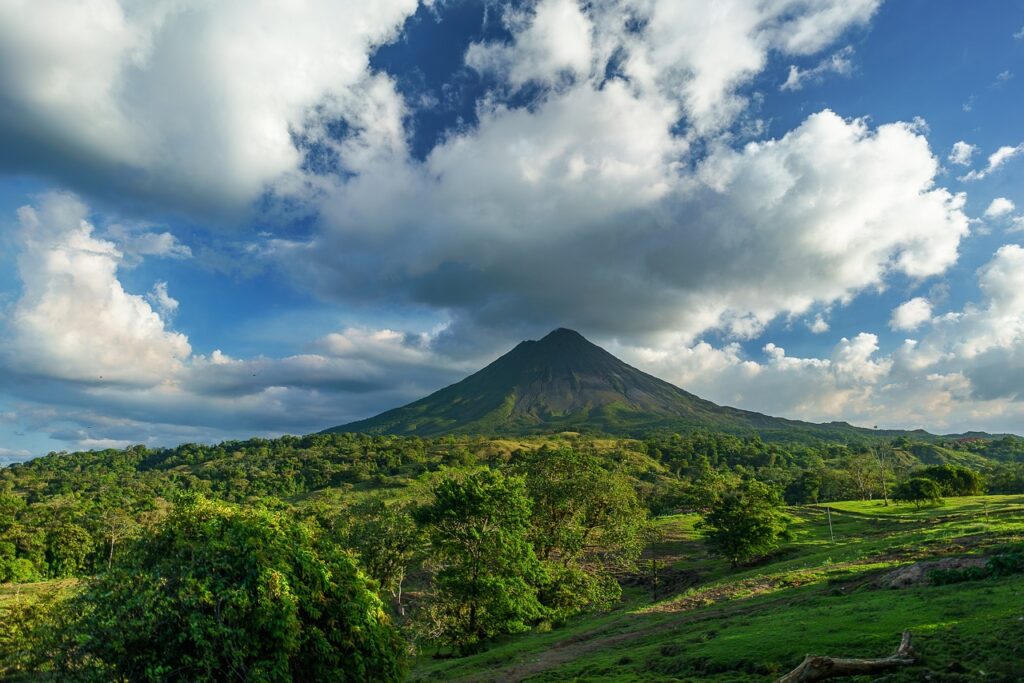
Costa Rica’s Osa Peninsula is a haven for eco-tourists, featuring a diverse range of wildlife and pristine rainforests. Located in the southern part of the country, the Osa Peninsula is home to Corcovado National Park, which National Geographic has dubbed “the most biologically intense place on Earth.” This protected area is a sanctuary for endangered species like the jaguar and the scarlet macaw. Eco-lodges and sustainable tours abound, ensuring that your visit leaves minimal impact on the environment. Adventure seekers can indulge in activities such as snorkeling in crystal-clear waters, hiking through dense jungles, or engaging in community-based tourism projects.
2. Bhutan
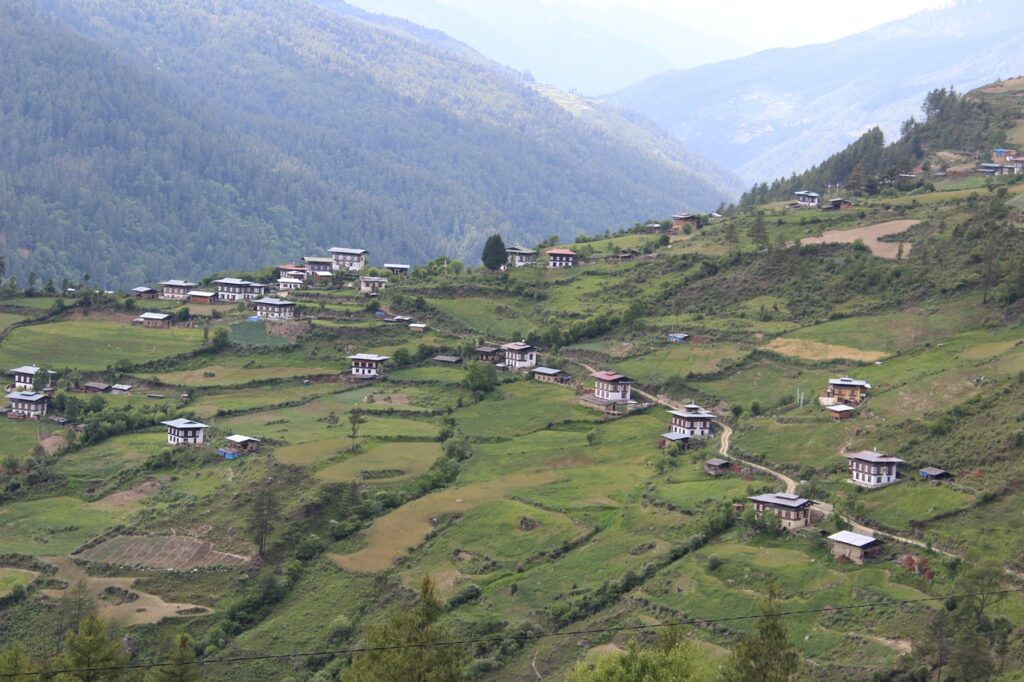
Nestled in the Himalayas, Bhutan is a pioneer in sustainable tourism. The country has a unique approach to tourism, focusing on “High Value, Low Impact” travel. Visitors are required to pay a daily tariff that funds social programs and environmental conservation. Bhutan’s commitment to preserving its natural and cultural heritage is evident in its numerous national parks and protected areas. Trekking through the unspoiled landscapes of the Phobjikha Valley, visiting the iconic Tiger’s Nest Monastery, or exploring the vibrant capital city of Thimphu, you’ll find that Bhutan offers a deeply enriching travel experience.
3. Azores, Portugal

The Azores, a stunning archipelago in the Atlantic Ocean, is one of Europe’s best-kept secrets for eco-conscious travelers. The islands boast an array of geothermal hot springs, volcanic craters, and lush green valleys. The local government has implemented strict regulations to maintain the ecological balance, promoting sustainable tourism practices. Activities such as whale watching, hiking along scenic trails, and diving in marine reserves allow visitors to connect with nature responsibly. The Azores’ commitment to sustainability extends to its accommodation options, with many eco-friendly hotels and guesthouses available.
4. Slovenia

Slovenia, with its enchanting landscapes and green tourism initiatives, is an emerging eco-friendly travel destination. The country’s capital, Ljubljana, has been recognized as one of the greenest cities in Europe. Slovenia’s commitment to sustainability is evident in its extensive network of bike paths, organic farms, and eco-friendly accommodations. Lake Bled, with its emerald-green waters and picturesque island, offers serene beauty while promoting sustainable tourism practices. Triglav National Park, home to the Julian Alps, provides ample opportunities for hiking, wildlife observation, and eco-adventures.
5. Borneo, Malaysia

Borneo, the third-largest island in the world, is renowned for its biodiversity and unique ecosystems. The Malaysian part of Borneo, particularly the states of Sabah and Sarawak, offers numerous eco-tourism opportunities. Visitors can explore the dense rainforests of Kinabalu National Park, home to the towering Mount Kinabalu and an array of rare flora and fauna. The Sepilok Orangutan Rehabilitation Centre provides a chance to see rescued orangutans being rehabilitated before their release back into the wild. Eco-lodges and community-based tourism projects in Borneo ensure that your visit supports conservation efforts and local communities.
6. Finland’s Lakeland

Finland’s Lakeland region is a paradise for eco-tourists, featuring thousands of pristine lakes and vast forests. The region’s commitment to sustainability is evident in its numerous national parks and protected areas. Visitors can engage in activities such as canoeing, fishing, and hiking, all while enjoying the tranquility of nature. The Finnish tradition of “Everyman’s Right” allows people to roam freely in nature, respecting the environment and leaving no trace behind. Eco-friendly accommodations, such as lakeside cabins and sustainable hotels, offer a comfortable and environmentally conscious stay.
7. Palau
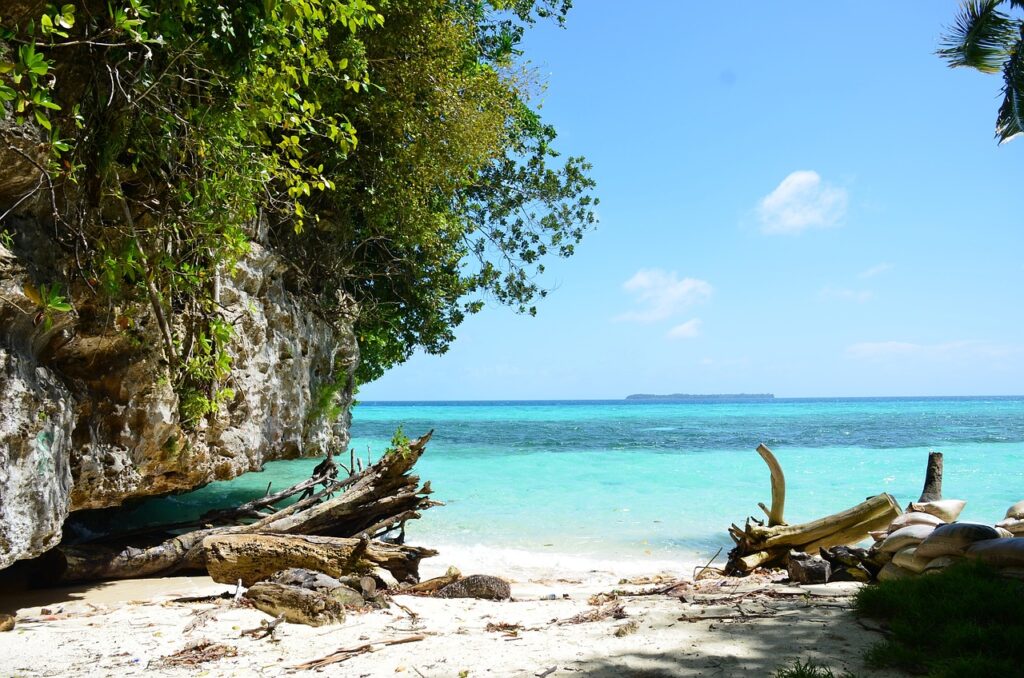
The island nation of Palau is a leader in marine conservation and sustainable tourism. Palau’s pristine waters are home to some of the world’s most diverse marine ecosystems, including vibrant coral reefs and abundant marine life. The country has implemented the Palau Pledge, a commitment that visitors must sign, promising to act responsibly and preserve the environment. Diving, snorkeling, and kayaking in Palau’s marine sanctuaries provide unforgettable experiences while supporting conservation efforts. Eco-friendly resorts and community-based tourism initiatives further enhance Palau’s dedication to sustainable travel.
8. New Zealand’s Fiordland
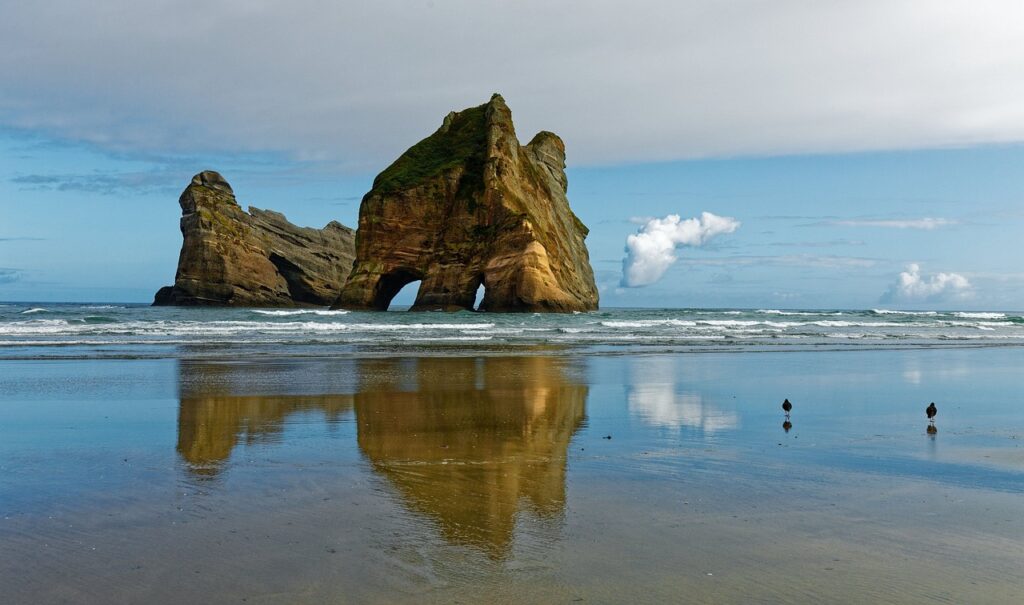
Fiordland, located in the southwest corner of New Zealand’s South Island, is a UNESCO World Heritage site renowned for its dramatic landscapes and unspoiled wilderness. The region’s deep fiords, towering cliffs, and cascading waterfalls offer a breathtaking backdrop for eco-friendly adventures. Activities such as hiking the famous Milford Track, cruising through the serene Doubtful Sound, and exploring the diverse flora and fauna of Fiordland National Park allow visitors to connect with nature responsibly. New Zealand’s commitment to conservation is evident in its strict environmental regulations and sustainable tourism practices.
9. Galápagos Islands, Ecuador

The Galápagos Islands are synonymous with ecological preservation and unique wildlife encounters. Located off the coast of Ecuador, this archipelago is a UNESCO World Heritage site and a model for sustainable tourism. Strict regulations and visitor limits ensure that the fragile ecosystems are protected. Guided tours led by certified naturalists offer insights into the islands’ unique biodiversity, including giant tortoises, marine iguanas, and blue-footed boobies. Eco-friendly accommodations and sustainable tourism practices make the Galápagos Islands a must-visit destination for responsible travelers.
10. Rwanda
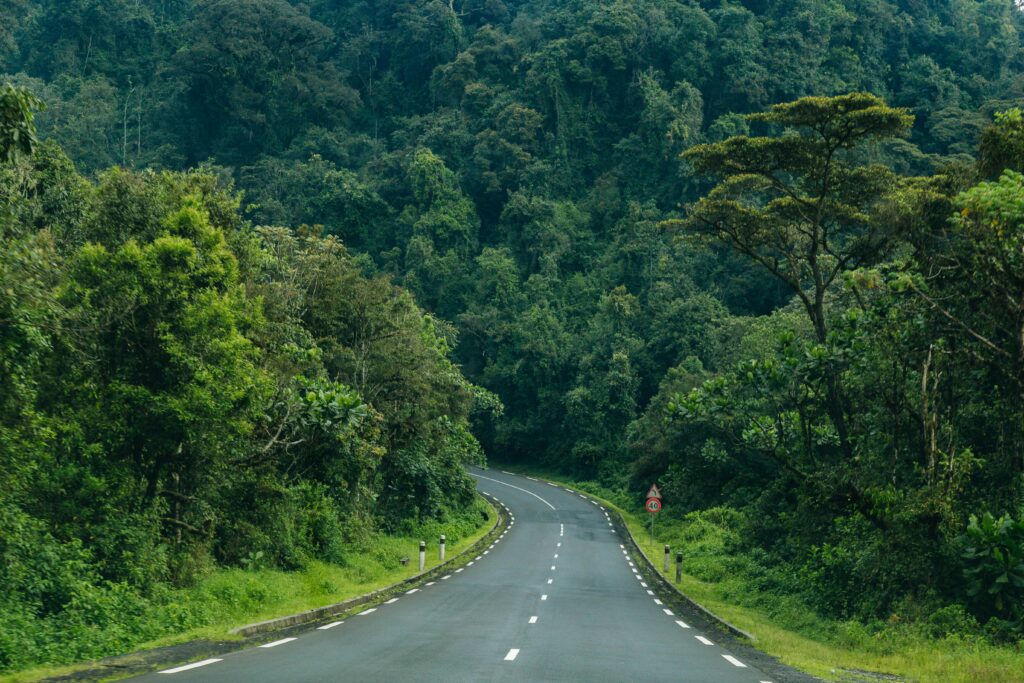
Rwanda, known as the “Land of a Thousand Hills,” is emerging as a top eco-friendly travel destination, particularly for wildlife enthusiasts. The country’s commitment to conservation is evident in its efforts to protect endangered mountain gorillas. Visitors can embark on guided treks in Volcanoes National Park to observe these magnificent creatures in their natural habitat. Rwanda’s sustainable tourism initiatives also include community-based projects that support local livelihoods. The capital city, Kigali, is one of the cleanest cities in Africa, reflecting the country’s dedication to environmental stewardship.
FAQs
What makes a travel destination eco-friendly?
Eco-friendly travel destinations prioritize sustainable practices that minimize environmental impact and promote conservation. These destinations often have regulations in place to protect natural resources, support local communities, and provide eco-friendly accommodation options. Activities offered are typically designed to respect and preserve the environment.
How can I ensure my travel is eco-friendly?
To ensure eco-friendly travel, choose destinations and accommodations that prioritize sustainability. Opt for activities that have minimal environmental impact, such as hiking, cycling, and wildlife observation. Support local businesses and conservation projects, reduce waste, and be mindful of your carbon footprint by using public transportation or carbon offset programs.
Why is sustainable tourism important?
Sustainable tourism is important because it helps protect the environment, supports local communities, and preserves cultural heritage. By promoting responsible travel practices, sustainable tourism ensures that destinations remain viable and attractive for future generations, preventing over-tourism and environmental degradation.
Are there any certifications for eco-friendly accommodations?
Yes, there are several certifications for eco-friendly accommodations, including LEED (Leadership in Energy and Environmental Design), Green Key, and EarthCheck. These certifications indicate that the property adheres to strict environmental and sustainability standards.
Can eco-friendly travel be luxurious?
Absolutely! Many eco-friendly travel destinations offer luxurious experiences that do not compromise on comfort or style. Eco-lodges, sustainable resorts, and green hotels provide high-end amenities while prioritizing environmental sustainability. These accommodations often use renewable energy sources, incorporate eco-friendly materials, and support local communities.
How do eco-friendly destinations benefit local communities?
Eco-friendly destinations benefit local communities by creating jobs, supporting local businesses, and funding conservation projects. Sustainable tourism initiatives often involve community-based tourism, where visitors engage with and learn from local residents. This promotes cultural exchange and ensures that tourism revenues directly benefit the community.
What are some tips for eco-friendly travel packing?
When packing for eco-friendly travel, choose reusable items such as water bottles, shopping bags, and utensils to reduce waste. Pack light to minimize your carbon footprint, and opt for eco-friendly toiletries and clothing made from sustainable materials. Avoid single-use plastics and bring a reusable straw and containers for food.
How can I find eco-friendly tours and activities?
Look for tour operators and activity providers that have eco-certifications or memberships in sustainable tourism organizations. Research their practices, such as how they minimize environmental impact, support conservation efforts, and engage with local communities. Reading reviews and testimonials can also help you choose responsible and eco-friendly options.
What is the Palau Pledge?
The Palau Pledge is a commitment that visitors to Palau must sign, promising to act in an environmentally responsible manner and preserve the country’s natural resources. The pledge includes guidelines for sustainable behavior, such as not touching marine life, disposing of waste properly, and respecting local customs and traditions.
How do national parks contribute to eco-friendly travel?
National parks play a crucial role in eco-friendly travel by protecting natural landscapes, wildlife, and ecosystems. They provide opportunities for outdoor recreation and education, promoting conservation and environmental awareness. National parks also generate economic benefits through tourism, supporting local communities and conservation efforts.



